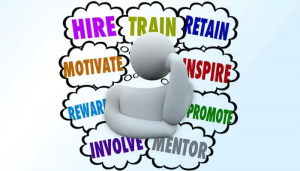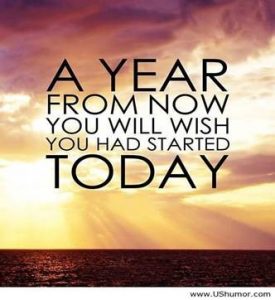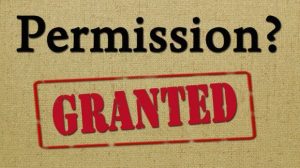Psychological Meaningfulness
 Most of us spend the majority of our week at the office, yet how many of us find our job to be meaningful? It can feel like a pipe dream to find work that makes us feel fulfilled and motivated. And the numbers back this up: according to a study by Bates College and Gallup, over 80% of college-educated Americans aspire to meaningful work, yet less than 50% actually attain it. This isn’t good news for organizations, as a lack of employee engagement and perceived meaninglessness leads to decreased productivity, lower morale and greater turnover
Most of us spend the majority of our week at the office, yet how many of us find our job to be meaningful? It can feel like a pipe dream to find work that makes us feel fulfilled and motivated. And the numbers back this up: according to a study by Bates College and Gallup, over 80% of college-educated Americans aspire to meaningful work, yet less than 50% actually attain it. This isn’t good news for organizations, as a lack of employee engagement and perceived meaninglessness leads to decreased productivity, lower morale and greater turnover
I just recently completed a certification from Cornell University on Diversity, Equity and Inclusion. The course, taught by Professor Nishii, takes a deep dive into the issue of employee engagement and it’s three components. We examined psychological availability last month and this month we’re taking a look at the second component: psychological meaningfulness.
What Is Psychological Meaningfulness?
What do we mean by the term “psychological meaningfulness”? Organizational psychologist William Kahn, author of the 1990 study “Physical Conditions of Personal Engagement and Disengagement at Work”, defined it as “employees perceiving their role/task as meaningful, both to the organization and within the context of wider society, to justify their “full self” being deployed.” Team members feel motivated within their positions due to challenge, opportunities for autonomy and strong goals. They feel like they’re a part of something larger than themselves.
What Psychological Meaningfulness Looks Like – and Steps to Avoid
There is no one-size-fits-all approach to meaningful work. It differs from person to person and often changes as people age, go through periods of personal change and have various life experiences. But we can agree that once a sense of meaningfulness is found, it brings about a greater sense of pride and achievement, a feeling of fulfillment and a satisfaction in finding work that is absorbing and interesting. And while there’s no magic formula for creating meaningful positions, there are definite steps that organizations don’t want to take. Here are 6 of the most common mistakes:
- Failing to recognize and appreciate team members’ contributions
- Creating a disconnect between organization and personal values
- Treating team members unfairly
- Overriding team members’ judgment and making them feel disempowered
- Creating a disconnect between team members
- Putting team members in situations where they feel unsafe
Most organizations don’t know where to begin when it comes to helping their employees find more meaning in their positions and increase overall engagement. The typical “office perks” are often surface level and don’t delve into the root issues. That’s where Leah M Joppy and Associates can help. A fresh approach and perspective, combined with experience tackling all different types of employee disengagement issues is just what you need to start next year off on a positive note! Call us at 301-670-0051 or email us at leah@lmja.com today.
Leading In A VUCA World
 There’s no doubt about it, we’re living in a VUCA world. Although it sounds like something out of a science-fiction movie, VUCA stands for volatility, uncertainty, complexity and ambiguity. And it’s become even more pronounced over the past few years. What’s also becoming clear is that strong management within organizations is more vital than ever and comfortable, classic models of leadership don’t work within our ever-changing climate.
There’s no doubt about it, we’re living in a VUCA world. Although it sounds like something out of a science-fiction movie, VUCA stands for volatility, uncertainty, complexity and ambiguity. And it’s become even more pronounced over the past few years. What’s also becoming clear is that strong management within organizations is more vital than ever and comfortable, classic models of leadership don’t work within our ever-changing climate.
So, what does it take to lead in a VUCA world? It takes a lot of effort, but here are some of the top ways to navigate the waters:
- Developing shared purpose and communicating it effectively: Leaders need to be skilled at building teams that have a shared vision. They must also be adept at helping team members understand their place within the big picture. Communication is key!
- Learning to move out of a comfort zone: The old ways of doing things may have worked in the past, but it doesn’t mean they’re going to work forever. Leaders must be open to change and embrace a fresh and creative approach to tackling challenges.
- Having the confidence to lead through times of uncertainty: Times of change can be difficult to handle and managers feel it as much as their team members (maybe even more!). However, strong leaders must be able to assess available information, risks, etc. and take strong, confident action based on their knowledge.
- Providing consistent support: This includes: mentoring team members to help them adjust to changes, modeling the desired behavior for embracing changes, providing and supporting employee learning and development and acknowledging and celebrating successes!
In today’s constantly changing world, leaders may feel like they need to step up their game to be as effective as possible. However, it can be intimidating
to take the first steps towards meaningful and sustainable action. Leaders don’t have to go it alone. Working with a coach, like Leah M Joppy and Associates, provides managers with a partner that can help them navigate our VUCA world. We work with leaders to develop the competencies outlined above and to survive and thrive in a VUCA climate. We also help leaders develop high levels of resiliency, so they’re ready to take on challenges and are less likely to experience burnout.
Call Leah M Joppy and Associates at 301-670-0051 or email leah@lmja.com to learn how we can help.
A Word For An Unsettled Environment
 Chances are, you’ve probably heard or read the acronym ‘VUCA’ (Volatility, Uncertainty, Complexity, Ambiguity) thrown around a time or two. It’s one of those buzz-worthy terms to describe the unsettled environment organizations have to deal with on a daily basis. And nothing has brought out VUCA more than the past few years, as organizations have dealt with unprecedented changes in day-to-day operations and had to pivot in unexpected ways.
Chances are, you’ve probably heard or read the acronym ‘VUCA’ (Volatility, Uncertainty, Complexity, Ambiguity) thrown around a time or two. It’s one of those buzz-worthy terms to describe the unsettled environment organizations have to deal with on a daily basis. And nothing has brought out VUCA more than the past few years, as organizations have dealt with unprecedented changes in day-to-day operations and had to pivot in unexpected ways.
The acronym ‘VUCA’ was first used in 1987 by the U.S Army War College to describe the unfortunate situation after the Cold War. The term later found its way into the business world and outlines four distinct challenges that leaders face:
Volatility: Challenges are unstable and unexpected. The duration of these challenges is unknown.
Uncertainty: The future is unpredictable. It’s nearly impossible to anticipate events and how they’ll unfold.
Complexity: Information is overwhelming and choosing a single right path is almost impossible. Challenges and their repercussions are more complex and harder to understand.
Ambiguity: Situations are vague and difficult to interpret.
In short, we’re living in a world that’s constantly changing and these changes, whether big or small, are happening faster and faster and in more unpredictable ways. Since we don’t have a crystal ball to see the future, the best way for an organization to be prepared is through strong leadership. As we saw over the past few years, change can be incredibly challenging for team members with people reacting to these changes in different ways. Skilled, prepared leaders are the key to meeting the challenges of VUCA head-on through:
- Maintaining strong lines of communication
- Keeping employees engaged
- Determining fresh and creative approaches to meet changes head-on
- Maintaining and growing productivity
And that’s just the start. It’s a tall order for even the most seasoned leader and one where they’ll need a strong level of support from upper management.
As much as we’d like to make time stand still for a bit and catch our breath, change and the challenges that accompany it, is inevitable. We don’t know exactly what changes are coming down the road, but working with a coach, like Leah M Joppy and Associates, can help your organization be prepared when they do happen. We can take a look at what challenges your organization has faced in the past, how your leadership team handled them, what worked and what didn’t. We can then work with you to improve approaches and develop creative and flexible solutions that will help make this VUCA world we’re living in a little more manageable.
Interested in learning more? Call us at 301-670-0051 or email leah@lmja.com.
Keeping Your Managers In Place
 When it comes to workplace satisfaction, employees continually rate “strong leadership” among one of the most important factors. Your management team is an integral part of your organization, but are you doing everything you can to support them and ensure that they have the necessary tools to lead effectively? In our last article, we looked at a few of the reasons why managers leave their jobs for other opportunities. What can organizations do to reduce turnover among managerial positions and keep current managers engaged? Here’s a look at a few suggestions:
When it comes to workplace satisfaction, employees continually rate “strong leadership” among one of the most important factors. Your management team is an integral part of your organization, but are you doing everything you can to support them and ensure that they have the necessary tools to lead effectively? In our last article, we looked at a few of the reasons why managers leave their jobs for other opportunities. What can organizations do to reduce turnover among managerial positions and keep current managers engaged? Here’s a look at a few suggestions:
- Provide adequate training: Some people are born leaders, but most need training and support when they’re in a managerial role. However, managers are often last in line when it comes to training and development. And it’s one of the biggest mistakes organizations can make. There are all kinds of beneficial training for managers, from honing their soft skills to methods for delegating more effectively and increasing productivity, to name a few.
- Monitor stress: The past few years have been particularly stressful for workers and managers are no exception. They’ve probably been trying to manage the anxiety and stress within their team, but they also need someone in their corner. Regular check-ins, encouraging open and honest feedback and providing flexibility to create work/life balance can really go a long way.
- Give regular feedback and praise: Consistent conversations about performance need to take place at all levels of an organization and that includes managers. Give praise where praise is due and provide constructive feedback on areas that could use improvement. Make sure managers are in the loop about future plans, so they understand where to place their priorities.
- Have regular career conversations: Managers who see opportunities for progression and a career path are more likely to be happy and engaged. If you can show them how their role might develop over time, they will continue to bring enthusiasm to the job.
If it sounds like a lot, don’t worry. That’s where working with a coach, like Leah M Joppy and Associates, can really help. We get to know your organization, your management team and help develop a plan to combat any issues head-on. We can also help develop training programs that tackle a variety of subjects.
Leah M Joppy and Associates is ready to work with your managers to not only increase job satisfaction, but ensure they feel supported in their role. It’s an investment that will pay off in increased loyalty and lower turnover. Call us at 301-670-0051 or email leah@lmja.com to learn how we can help.
In These Times, Can We Even Plan Ahead?
 With all the variables in the world today, it can seem like your agency or association is in a constant state of flux. Without the aid of a crystal ball, it may seem like planning for the future is an exercise in futility. Organizations may be tempted to wait and see what happens during times of uncertainty. But all of these unknowns shouldn’t keep you from looking ahead. In fact, failing to plan is a huge mistake for so many reasons.
With all the variables in the world today, it can seem like your agency or association is in a constant state of flux. Without the aid of a crystal ball, it may seem like planning for the future is an exercise in futility. Organizations may be tempted to wait and see what happens during times of uncertainty. But all of these unknowns shouldn’t keep you from looking ahead. In fact, failing to plan is a huge mistake for so many reasons.
In uncertain times, it’s the most resilient organizations that succeed. Part of that resilience is looking ahead as best you can and planning no matter what the future may hold. Here are a few important questions to consider as you develop a strategic plan:
- What do we know about the current environment in which we’re working?
- What hasn’t changed? What can we predict with some level of certainty?
- What do we need to prepare or plan for ‘just in case’?
- Has anything about the current environment caused us to reconsider or change our mission and/or values?
- What is our action plan for the next year? What are our objectives, timelines, budget to work with, etc?
Of course, the key to navigating times of uncertainty is developing a strategy with flexibility. But instead of hoping for the best, you at least have a plan that gives you and your team some sense of a forward-moving mission.
No matter what direction your agency or association takes in the months ahead, everyone has areas that can be strengthened with a little help, probing and encouragement. That’s where Leah M Joppy and Associates can help. We help you take control of your future by developing an action plan that positions you to succeed, no matter what the coming months may bring. Call us at 301-670-0051 or email leah@lmja.com to learn more.
Re-focusing On What Matters
 So many of us go through the motions when it comes to our day-to-day work, but the last couple of years truly changed all of that. The way we work, the way we manage, and the way we interact are just a few of the areas that were turned upside down for so many of us. It tested our resilience, our patience and most likely, our mindset. Usually the New Year is a time to hit the reset button with refreshed energy. However, after recent events you and your team are probably feeling burned out and overwhelmed. This can lead to a negative mindset that doesn’t help any department move forward.
So many of us go through the motions when it comes to our day-to-day work, but the last couple of years truly changed all of that. The way we work, the way we manage, and the way we interact are just a few of the areas that were turned upside down for so many of us. It tested our resilience, our patience and most likely, our mindset. Usually the New Year is a time to hit the reset button with refreshed energy. However, after recent events you and your team are probably feeling burned out and overwhelmed. This can lead to a negative mindset that doesn’t help any department move forward.
How can you help your employees start the New Year with a fresh, focused mindset when everyone is still reeling from recent challenges? If there’s one area you should focus on, it’s relationships. Employees need connection, support, and guidance from management and peers in order to feel engaged and valued. Here are a few commitments you can make in the coming months to refocus and improve mindset:
Reconnect with your team. To effectively manage your team, it’s important to understand their values, interests and strengths. Make it a goal this year to get to know them better and develop a plan to have team members connect with each other more effectively going forward.
Make goal creation a shared task. We’ve all dealt with feelings of isolation during the past years, so including team members in the goal creation process makes them feel included, valued, and part of the organization. It gives everyone a chance to reflect on what worked last year, what didn’t, and how to move forward with renewed energy.
Share more performance information. No one wants to feel like they’re being kept in the dark. Team members are much more likely to be engaged and focused when they receive clear feedback. If this is an area that you neglected over the past months, now is the time to start reengaging with team members.
The past years have challenged us all, but if there’s one lesson we can take from all of this, it’s the importance of strong relationships for building a positive team mindset. This year, commit to enhancing employee relationships through observing, listening, and guiding. Leah M. Joppy and Associates is ready to help you start the New Year off strong by offering coaching seminars that focus on developing a productive, postive mindset. For more information, contact us at 301-670-0051 or email leah@lmja.com.
PLANNING FOR THE NEW YEAR
 What a long, strange ride it has been in the last few years! If the last few years have taught us one major lesson, it’s that plans can get derailed and we must be willing to adapt. They’ve also given us an opportunity to assess our way of doing business within a new framework. For example, what are some of the biggest lessons you’ve learned this past year? What are some of the biggest challenges facing your organization over the next year and beyond? What are your strengths and weaknesses to meet those challenges?
What a long, strange ride it has been in the last few years! If the last few years have taught us one major lesson, it’s that plans can get derailed and we must be willing to adapt. They’ve also given us an opportunity to assess our way of doing business within a new framework. For example, what are some of the biggest lessons you’ve learned this past year? What are some of the biggest challenges facing your organization over the next year and beyond? What are your strengths and weaknesses to meet those challenges?
You may have already developed a strategic plan for the year, but if we’ve learned anything, it’s that plans can change quickly. That’s why it’s important to consider the following when drafting a plan for the next year:
- Embrace Reality: While we’re all ready for the pandemic to be over, we’re still going to be doing business differently for a while. You may want to keep some of the changes you made over the past year. Or based on what you’ve learned over the past several months, you may need to make additional plans based on existing conditions.
- Be Adaptable: Organizations that were able to pivot quickly when the pandemic began experienced less impact than those who struggled through the process. Flexible processes and adaptable strategies are your best course of action if things worsen before they improve.
- Make Your People A Top Priority: People are the core of your department and now, more than ever, you need to take care of them. This includes physical and mental health, as well as work-life balance. With so many people working from home, communication should be a priority. What’s worked well over the past several months? What areas could use improvement?
- Plan For The Unusual: A long-term strategy that includes various scenarios helps you navigate challenges. For example, additional equipment and tools for remote workers, plans for employees who may be out due to the coronavirus and workers who need flexibility due to school closures are all issues to consider.
Planning in advance is one way effective leaders avoid the stress of falling behind, particularly during times of uncertainty. Leah M. Joppy and Associates has worked with numerous firms to draft annual plans that align and inspire teams to reach their goals for the coming year – and beyond. Then we help you put it all into action. For more information, contact us at 301-670-0051 or email leah@lmja.com.
Pivoting To A New Way Of Business
 For the past year, the COVID-19 pandemic forced many workplaces to upend traditional office environments and pivot to a new way of doing business. These changes looked different across various industries, but one thing is certain: work life will never be the same again. Many of the workplace changes that became necessary because of the pandemic will likely impact the way we work for the long-term. This month and next, we’ll look at a few of the workplace trends you can expect to see. Here’s a look at 3 of the biggest:
For the past year, the COVID-19 pandemic forced many workplaces to upend traditional office environments and pivot to a new way of doing business. These changes looked different across various industries, but one thing is certain: work life will never be the same again. Many of the workplace changes that became necessary because of the pandemic will likely impact the way we work for the long-term. This month and next, we’ll look at a few of the workplace trends you can expect to see. Here’s a look at 3 of the biggest:
- Continuation of remote work or moving towards a hybrid model: According to surveys from the IBM Institute of Business Value, 83% of people want to continue working from home in some capacity. Many organizations have seen the light and have determined that some degree of remote work can be a win-win for everyone. It’s a retention tool for present employees, as well as a recruitment perk for future talent.
- Bigger focus on employee wellbeing: The pandemic has required organizations to rethink what it means to have a healthy and safe workplace. Many are improving benefits related to employee mental and physical health, childcare and paid time off. Workspaces will be reimagined to maximize both safety and employee collaboration.
- Improving schedule flexibility: Prior to the pandemic, flexibility was seen as a perk. For many, it’s now a necessity. Employers are finally understanding the need to accommodate families who have school-aged children at home, particularly those who will continue with some form of online learning. After a year of working from home, many employees have grown accustomed to more flexible working hours and are going to be resistant to going back to more rigid hours. Now is the time to look at present policies and implementing changes to accommodate your team members.
Have you started thinking about how your workplace will look moving forward? Now is the time to rethink your old systems and habits and create a better environment for your team. Leah M. Joppy and Associates can help you take a look at your old ways of doing business and where you can make improvements – all while continuing to maximize productivity. Call us at 301-670-0051 or email leah@lmja.com.
Re-imagining How Work Is Done
 When we think about how our lives have changed over the past year, our work life is probably one area where we’ve felt the greatest impact. The pandemic forced many offices to adopt new ways of working in order to protect the safety and wellbeing of employees – and they had to do it virtually overnight. For many people, it meant working from home exclusively and the numbers prove it. According to a Gallup Poll, the percentage of Americans working in some form from home jumped from around 25% to more than 60% during the height of the pandemic. As more people are fully vaccinated and life begins to return to some sense of normalcy, many employees have started to return to the office. However, the future of traditional work life and workspace will likely be impacted for the foreseeable future.
When we think about how our lives have changed over the past year, our work life is probably one area where we’ve felt the greatest impact. The pandemic forced many offices to adopt new ways of working in order to protect the safety and wellbeing of employees – and they had to do it virtually overnight. For many people, it meant working from home exclusively and the numbers prove it. According to a Gallup Poll, the percentage of Americans working in some form from home jumped from around 25% to more than 60% during the height of the pandemic. As more people are fully vaccinated and life begins to return to some sense of normalcy, many employees have started to return to the office. However, the future of traditional work life and workspace will likely be impacted for the foreseeable future.
Some employees are eager to return to the office and have face-to-face contact with others and enjoy post-work happy hours. Others have adjusted to working from home and don’t miss their long commute. Companies are realizing that there are advantages to both work from home and office time. That’s why the hybrid model where employees can work at least a few days from home may likely become the new norm. It’s one of several workplace trends that we’ll discuss in the next article.
There are a lot of questions businesses must answer about the role of the office moving forward. It differs across industries and there is no one-size-fits all approach. However, there are some universal steps organizations need to take to re-imagine how work is done:
- Decide how and where people work: Can some workers be fully remote? Does a hybrid remote model make more sense? Or does work need to take place on site?
- Redesign the workplace to correspond with company priorities: Looking at spacing issues between desks, meeting space, the airflow of the office and upgrading technology to collaborate with people working from home are just a few areas to consider.
- Look at the footprint of the office and resize creatively: Now is the time to take a fresh look at how much space is required and the location.
Across industries, leaders will use the lessons learned from the pandemic to reimagine how and where work gets done. Employees will demand it. Organizations must use this time to break from the old habits of the past and reinvent what a collaborative and productive work environment looks like moving forward. Creative and bold organizations will be the ones that meet the challenge and retain and attract employees.
Is your organization poised to make challenging workplace decisions that will create a better experience for your employees? Leah M Joppy and Associates is ready to help. Call us at 301-670-0051 or email leah@lmja.com to learn more.
Permission-Based Coaching
 Sometimes it feels like we live in a society that thrives on giving unsolicited advice and loves to “tell” instead of “ask”. “You should do [insert task here] this way.” “You need to handle [insert situation here] by doing this.” After a while, we can feel like we’re losing our sense of autonomy or worse, start to doubt our ability to make decisions on our own. However, one place where you should never feel like you’re being “told” instead of “asked” is when you’re working with a coach. That’s why “permission coaching” is such a vital part of the process. By asking permission when having a discussion, it helps people feel like they’re in the driver’s seat and their feelings are respected. It also establishes trust in the coaching relationship. Here are a few approaches that are permission-based:
Sometimes it feels like we live in a society that thrives on giving unsolicited advice and loves to “tell” instead of “ask”. “You should do [insert task here] this way.” “You need to handle [insert situation here] by doing this.” After a while, we can feel like we’re losing our sense of autonomy or worse, start to doubt our ability to make decisions on our own. However, one place where you should never feel like you’re being “told” instead of “asked” is when you’re working with a coach. That’s why “permission coaching” is such a vital part of the process. By asking permission when having a discussion, it helps people feel like they’re in the driver’s seat and their feelings are respected. It also establishes trust in the coaching relationship. Here are a few approaches that are permission-based:
- “I’d like to discuss some more about this matter. Would this be okay with you?”
- “Is this a good time to talk and explore this topic a little more?”
- “Can we spend a few minutes brainstorming some ideas about this?”
- “I’m getting the sense you have more to say about this topic. Could I ask some more in-depth questions?”
Some people get so used to being “told” what to do that it becomes a comfortable pattern. It’s easier to be led and rely on someone else than make autonomous decisions. On the other hand, other people who live or work in an environment where they’re consistently being told what to do may become defensive and resentful. Both personalities benefit from “permission coaching” because it gives them a chance to explore their own thoughts and insights independent from being told what to think or feel.
This isn’t always an easy process and it takes work, particularly if you’re accustomed to being told how to handle things under the guise of “advice”. If you’re interested in learning more about how working with a coach can help you explore your thoughts and reach new insights on YOUR terms, Leah M. Joppy and Associates can help. Call us at 301-670-0051 or email leah@lmja.com.